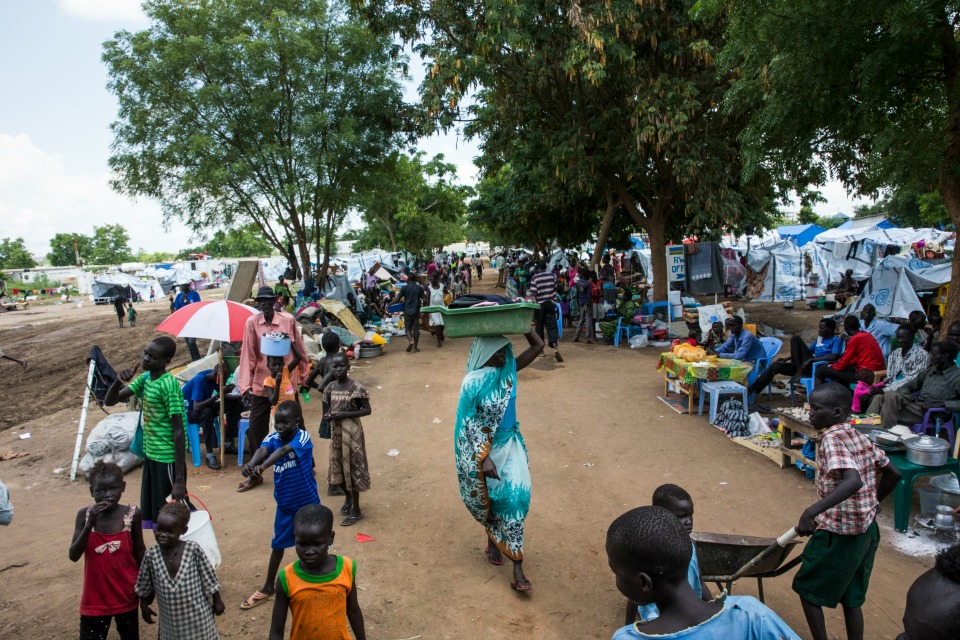"All of our support needs to be in partnership with the people and governments of African countries"
Statement by Ambassador Matthew Rycroft, UK Permanent Representative to the United Nations, in the UN Security Council Open Debate on Peacebuilding in Africa

Thank you, Mr President, for convening this debate. I join others in thanking the Secretary-General, Amina Mohamed and Smail Chergui for their briefings and all the Ministers for their presence.
As we’ve just heard, Africa is so often associated with the scourge of war …in countries, like the Democratic Republic of Congo, where millions lost their lives in the deadliest conflict since World War Two… in regions like the Lake Chad Basin, where just yesterday we heard how millions face famine because of the instability caused by Boko Haram.
But this portrayal is incomplete. Many countries in Africa are living, thriving in peace, and others are escaping the conflict cycle… countries like Sierra Leone, Liberia, Cote D’Ivoire. So how can we build on those peacebuilding successes? What can we learn from them? And how can this Council support peacebuilding so that there are more successes to come?
First, all of our support needs to be in partnership with the people and governments of African countries. It is not our place to proscribe solutions. We should instead work together to strengthen the ability of each country to identify its own threats and to help it respond to them before conflict happens.
This means building on existing practices, like the African Union’s continental early warning system and the Panel of the Wise. And our efforts need to focus on building the capacity of a country’s institutions, just as the Secretary-General said this morning, so that they can secure predictable and sustainable finances. This in turn will allow them to develop African led prevention and mediation processes, supporting African ownership.
Second, it is vital that we get better at planning UN interventions that reflect the full conflict cycle, including considering from the outset how UN missions will complement the work of existing UN staff in the country. Crucially it means planning how missions will transition when their objectives have been achieved.
So I strongly support the work of the Executive Office of the Secretary General’s Strategic Planning and Analysis Cell. Rigorous analysis and planning is vital to the effectiveness of the UN and the Cell must be empowered to lead cross-UN analysis of emerging conflict.
At the heart of all of this analysis needs to be the recognition that countries are different and have different drivers of conflict. Our planning needs to be based on real understanding - mandates should be country specific. And then from better planning flows the better use of phased mandates. These can help ensure that mandated activities and resources are the most appropriate to the political and security conditions. In some cases, we need to recognise that UN Peacekeeping and Peacebuilding operations may not be best placed to deliver institution building which requires long-term and specialist engagement. Where appropriate we need to draw on support from the UN Country Team and from others.
Third, sustainable peace needs inclusive participation and good governance. Implementing the Sustainable Development Goals, especially Goal 16, will be crucial. Well governed and inclusive societies, with effective and accountable institutions, form the foundations for stability and for economic growth. So by promoting transparency and accountability, tackling corruption and ensuring finances are used effectively, we can help tackle some of the key underlying causes of fragility and drivers of conflict.
But to build a sustainable peace, everyone must be allowed to play their part. Women have a crucial role in conflict resolution and peacebuilding, as well as in building institutional capacity and resilience. Women’s participation needs more support. Working with non-state actors and informal institutions can be important entry points. But this should not just be for the elite; getting the right support down to grassroots organisations and civil society will also help create positive changes in the lives of women and girls. And it means women being able to participate, without fear of reprisal or backlash, in politics at all levels, formal and informal.
We can also do more to engage young people. Africa has more people aged under 20 than anywhere else in the world. Capturing all of this potential… channelling this energy into positive change is vital for peace, stability and prosperity. So we all need to respond to this opportunity by supporting the needs of children and young people through education, training and employment.
And finally, as I stated before, tackling potential risks to stability early is the most effective approach to creating a sustainable peace. Doing so prevents enormous human suffering, fear and displacement. And it makes economic sense. But to be effective, early warning requires early action. This takes political will - from individual countries, from this Council, from the Peacebuilding Commission and from key regional actors. And I hope we will all show such will in the coming weeks and months ahead.
Thank you.